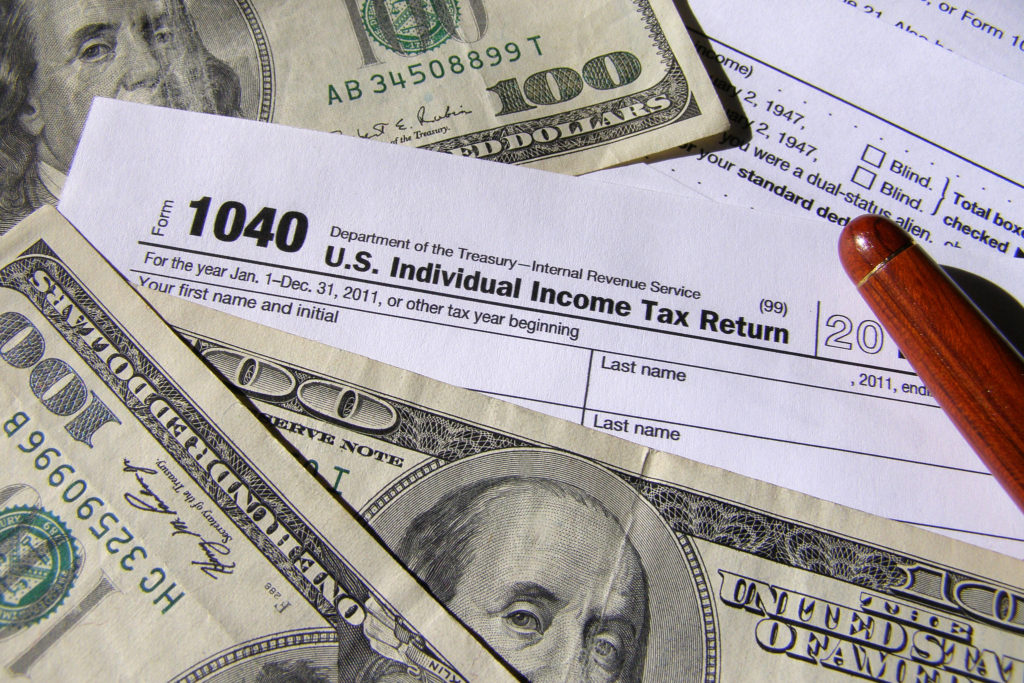Usually, Democrats are fairly subversive in their tactics when carrying out their agenda – but that has changed drastically. Congressional Democrats released a detailed tax increase agenda that they promise to implement if their party takes back control of Congress following the November midterm elections.
As one might expect, they will turn you upside down and shake the pocket change out of your pants.
1. Increase the top marginal income tax rate from 37 percent to 39.6 percent.
This tax hike is not only a hike on those in the top tax bracket, but it is also a direct tax increase on small and medium-sized businesses, according to a report from Forbes. Over 30 million companies in the U.S., which are organized as sole proprietorships, partnerships, Subchapter-S corporations, and LLCs all pay their business taxes on their owners’ 1040-form personal tax returns. Therefore, just as Democrats wish to tax the wealthy one percent, they are, in fact, hiking the tax rate on small businesses.
Due to the Republican-led tax overhaul signed by President Trump in December, workers have seen bigger paychecks, all because people are keeping more of the money they have earned with the new IRS withholding tables. According to the report, people will continue to experience bigger paydays for as long as the tax rates in law remain in effect and that families of four should see their federal income tax decline from $2000 to $4000, depending on their income level and number of children.
2. Increase the corporate income tax rate from 21 percent to 25 percent.
Until the tax overhaul, the U.S. had one of the highest corporate tax rates in the world at 35 percent. As a result, jobs and capital were fleeing America for more normal tax rates that could be found in tax havens overseas. The rate impeded on attracting new jobs and investment to the country.
As a result of the rate cut from 35 to 21 percent, large companies like Fiat-Chrysler, Amgen, Amicus Therapeutics, Kia, Carrier, and many others have announced new factories and jobs would be built in America, not in other countries like was previously planned.
Americans for Tax Reform has kept a running list of tax cut bonuses, raises, 401(k) match increases, and other benefits companies are passing along to workers as a result of the Tax Cuts and Jobs Act. Currently, 431 companies and over 4 million workers have received increased benefits from the new law.
In March, Cox Enterprises announced bonuses of up to $2000 for 55,000 of their workers. Walmart, Wells Fargo, Starbucks, and many others announced permanent wage hikes for all employees, notably those on the lowest pay scale.
3. Bring back the alternative minimum tax (AMT).
Up until this year, four million upper middle class families had to calculate their income taxes two separate ways, paying the higher result. This was due to a provision of the tax law known as AMT.
Furthermore, millions more individuals and families had to hire a tax preparer to do the complex calculations – even if they did not end up paying AMT. Though, the federal tax overhaul repealed AMT for almost 99 percent of people due to a higher AMT standard deduction.
4. Cut the “death tax” standard deduction in half.
Inarguably the most unpopular tax, as over 70 percent of Americans oppose it, Democrats wish to burden American who are grieving over the loss of a loved one. While the tax overhaul did not repeal the death tax, but it did the next best thing – it doubled the death tax’s standard deduction from $5.5 million to $11 million, and twice that for surviving spouses.
As a result, far fewer family businesses and farms will be subject to the death tax, with many smaller firms shedding the costly insurance, legal, and actuarial costs of avoiding the death tax. Of course, Democrats do not understand that those hardest by the death tax are not the top one percent of earners.
The Tax Cuts and Jobs Act is growing in popularity, as The New York Times recently reported that it is actually a “majority” of Americans that support the measure. So, it is highly confusing that Democrats are still “running” on the economy for the midterm elections.
Even a Democratic pollster recently wrote about the bonndoggle:
“Since the passage of the Republicans’ tax bill, and even before it, Democrats have been losing the messaging war. Now that many Americans are seeing the results in their paystubs, it’s even harder for Democrats to make this a winning issue. Voters are seeing the bill’s positive impact and are not likely to oppose it because we tell them they’re not benefiting, and many voters who aren’t seeing the impact still support the bill. If Democrats want to continue using this bill as a major issue for November, we need a new messaging strategy.”
All these “crumbs” are starting to add up – not just in bigger paychecks and increased economic opportunities, but in votes.

